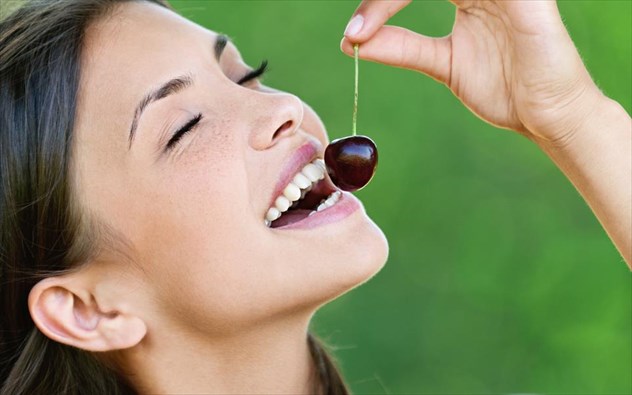Did you know that if you want to have lips like cherries, you should honour this fruit more? It contains metal salts, fibre and ellagic acid. Cherries are also rich in vitamins A, C, B, potassium, calcium, phosphorus, iron, magnesium and copper. Many studies have shown that administration of sufficient quantities of phytosterols, which are abundant in cherries, decreases the level of total cholesterol in the blood.
Shield against Infection
Researchers have recently found that cherry juice is a powerful antibacterial agent against dental caries. In particular, it was discovered that cherry juice inhibits by 89% the effect of the enzymes causing formation of plaque, the initial symptom of tooth decay.

Cherries are the Enemy of Fatigue
Eat cherries and your mind will operate faster. They will significantly reduce mental fatigue and are especially useful for students during the exam sessions at the end of the school year, when there are cherries in abundance, by the way. Cherries are good for athletes too – thanks to their minerals the alkaline reserves of the body are increased.
No More Anaemia!
Cherries contain a lot of iron and assist hematopoiesis. They have a detoxifying effect and improve the urinary system function, also acting as diuretics and digestives.
Bowels’ Best Friend
Cherries contain minerals and microelements. They also relieve rheumatic pain and gout.

Protection against Cancer
What is particularly significant regarding cherries is that they are especially rich in certain plant chemicals called anthocyanins. Due to them, the cherries are red-coloured and they neutralize carcinogens. Cherries also provide great assistance in the prevention of diabetes mellitus.
History of Cherries
Ancient Greeks believed that cherries come from Asia Minor, and more specifically from the town of Kerasuda. This is why cherries are called “kerasia” in Greek. The Roman strategist Lucullus found them and took them back to Italy from where they made their way to our table.